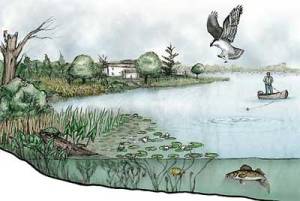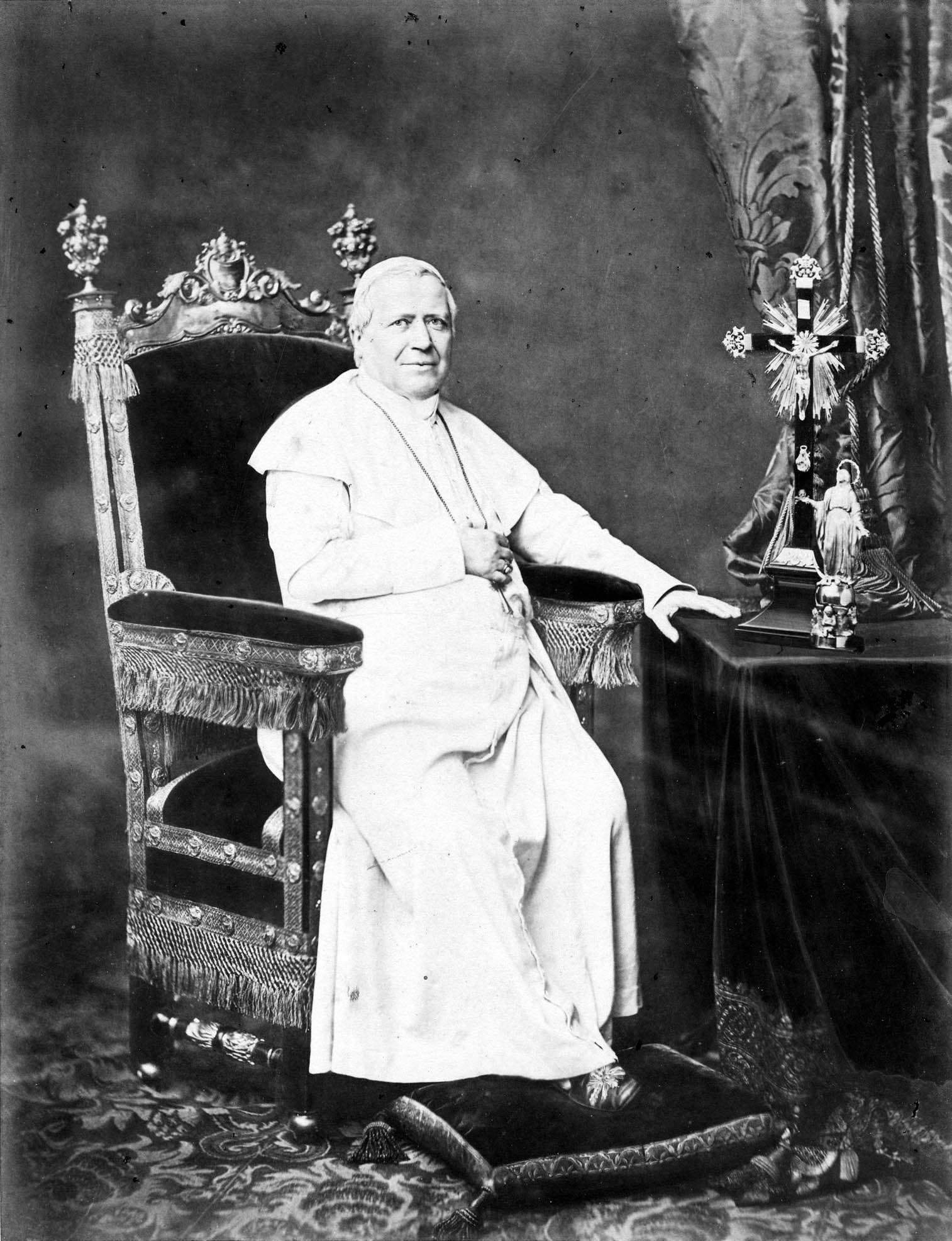|
Religious Naturalism
Religious naturalism is a framework for religious orientation in which a naturalist worldview is used to respond to types of questions and aspirations that are parts of many religions. It has been described as "a perspective that finds religious meaning in the natural world." Religious naturalism can be considered intellectually, as a philosophy, and it can be embraced as a part of, or as the focus of, a personal religious orientation. Advocates have stated that it can be a significant option for people who are unable to embrace religious traditions in which supernatural presences or events play prominent roles, and that it provides "a deeply spiritual and inspiring religious vision" that is particularly relevant in a time of ecological crisis. Overview Naturalism Naturalism is the view that the natural world is all that exists, and that its constituents, principles, and relationships are the sole reality. All that occurs is seen as being due to natural processes, with nothing ... [...More Info...] [...Related Items...] OR: [Wikipedia] [Google] [Baidu] |
Wesley Wildman
Wesley J. Wildman (born 1961) is a contemporary Australian-American philosopher, theologian, ethicist, and computational social scientist. He is dually appointed as a full professor at Boston University, in the School of Theology and in thFaculty of Computing and Data Sciences(where he was a founding faculty member). He is founding co-editor of the journal ''Religion, Brain & Behavior'' (published by Taylor & Francis). A nonprofit entrepreneur since 2007, he is founder and executive director oJust Horizons Alliance which describes itself as a nonprofit strategic change engine formulating adaptive responses to the unprecedented cultural situation facing humanity. As a philosopher of religion, Wildman's scholarly work has focused on interpreting religious and non-religious worldviews and lifeways, and building theories of beliefs, behaviors, and experiences that acknowledge value in longstanding religious wisdom traditions while attempting to remain intellectually viable in lig ... [...More Info...] [...Related Items...] OR: [Wikipedia] [Google] [Baidu] |
Henry Nelson Wieman
Henry Nelson Wieman (1884–1975) was an American philosopher and theologian. He became the most famous proponent of theocentric naturalism and the empirical method in American theology and catalyzed the emergence of religious naturalism in the latter part of the 20th century. His grandson Carl Wieman is a Nobel laureate, and his son-in-law Huston Smith was a prominent scholar in religious studies. Early life Wieman studied at Park College in Missouri, graduating in 1907. In 1910, he graduated from the San Francisco Theological Seminary and moved to Germany for two years to study at the universities in Jena and Heidelberg. There, he studied under the theologians Ernst Troeltsch and Adolf von Harnack and the philosopher Wilhelm Windelband, but they all had little impact on Wieman. Wieman moved back to the United States and spent four years as a Presbyterian pastor in California. Then, he moved to Harvard to do a doctorate in philosophy, which he received in 1917, under th ... [...More Info...] [...Related Items...] OR: [Wikipedia] [Google] [Baidu] |
The Journal Of Religion
''The Journal of Religion'' is an academic journal published by the University of Chicago Press founded in 1897 as ''The American Journal of Theology''. The journal "embraces all areas of theology (biblical, historical, ethical, and constructive) as well as other types of religious studies (literary, social, psychological, and philosophical)." See also *List of theological journals *University of Chicago The University of Chicago (UChicago, Chicago, or UChi) is a Private university, private research university in Chicago, Illinois, United States. Its main campus is in the Hyde Park, Chicago, Hyde Park neighborhood on Chicago's South Side, Chic ... References Publications established in 1882 Religious studies journals University of Chicago Press academic journals Quarterly journals {{reli-journal-stub ... [...More Info...] [...Related Items...] OR: [Wikipedia] [Google] [Baidu] |
Edgar S
Edgar is a commonly used masculine English given name, from an Anglo-Saxon name ''Edgar'' (composed of '' ead'' "rich, prosperous" and '' gar'' "spear"). Like most Anglo-Saxon names, it fell out of use by the Late Middle Ages; it was, however, revived in the 18th century, and was popularised by its use for a character in Sir Walter Scott's ''The Bride of Lammermoor'' (1819). The name was more common in the United States than elsewhere in the Anglosphere during the 19th century. It has been a particularly fashionable name in Latin American countries since the 20th century. People with the given name * Edgar the Peaceful (942–975), king of England * Edgar the Ætheling (c. 1051 – c. 1126), last member of the Anglo-Saxon royal house of England * Edgar of Scotland (1074–1107), king of Scotland * Edgar Alaffita (born 1996), Mexican footballer * Edgar Allan (other), multiple people * Edgar Allen (other), multiple people * Edgar Angara (1934–2018), Fil ... [...More Info...] [...Related Items...] OR: [Wikipedia] [Google] [Baidu] |
SP Books
SP Books is an independent publishing house specialised in the publication of limited facsimile editions of literary manuscripts. Founded in 2012 by Nicolas Tretiakow and Jessica Nelson, SP Books has published the manuscripts of major literary figures including Francis Scott Fitzgerald, Mary Shelley, Oscar Wilde, Victor Hugo, Virginia Woolf, Marcel Proust, Lewis Carroll, Jules Verne & Charlotte Brontë. Based in Paris, France France, officially the French Republic, is a country located primarily in Western Europe. Overseas France, Its overseas regions and territories include French Guiana in South America, Saint Pierre and Miquelon in the Atlantic Ocean#North Atlan ..., SP Books publishes oversize, slipcased books that are printed on deluxe paper and feature facsimiles of the handwritten manuscripts, with revisions and notes. Most print runs are limited and hand-numbered. “SP” stands for “Saints Peres”, district of Paris where the company was originally fou ... [...More Info...] [...Related Items...] OR: [Wikipedia] [Google] [Baidu] |
Reconstructionist Judaism
Reconstructionist Judaism () is a Jewish religious movements, Jewish movement based on the concepts developed by Rabbi Mordecai Kaplan (1881–1983)—namely, that Judaism as a Civilization, Judaism is a progressively evolving civilization rather than just a religion. The movement originated as a semi-organized stream within Conservative Judaism, developed between the late 1920s and the 1940s before seceding in 1955, and established a Reconstructionist Rabbinical College, rabbinical college in 1967. Reconstructionist Judaism is recognized by many scholars as one of the five major streams of Judaism in America alongside Orthodox Judaism, Orthodox, Conservative Judaism, Conservative, Reform Judaism, Reform, and Humanistic Judaism, Humanistic. There is substantial theological diversity within the movement. ''Halakha'' (Jewish law) is not considered normative and binding but is instead seen as the basis for the ongoing evolution of meaningful Jewish practice. In contrast with the Refo ... [...More Info...] [...Related Items...] OR: [Wikipedia] [Google] [Baidu] |
Mordecai Kaplan
Mordecai Menahem Kaplan (June 11, 1881 – November 8, 1983) was an American Conservative rabbi, writer, Jewish educator, professor, theologian, philosopher, activist, and religious leader who founded the Reconstructionist movement of Judaism along with his son-in-law Ira Eisenstein. He has been described as a "towering figure" in the recent history of Judaism for his influential work in adapting it to modern society, contending that Judaism should be a unifying and creative force by stressing the cultural and historical character of the religion as well as theological doctrine. Life and work Mordecai Menahem Kaplan was born Mottel Kaplan in Sventiany in the Russian Empire (present-day Švenčionys in Lithuania) on June 11, 1881, the son of Haya (née Anna) and Rabbi Israel Kaplan. His father, ordained by the leading Lithuanian Jewish luminaries, went to serve as a dayan in the court of Chief Rabbi Jacob Joseph in New York City in 1888. Mordecai was brought over to New York i ... [...More Info...] [...Related Items...] OR: [Wikipedia] [Google] [Baidu] |
Syllabus Of Errors
The Syllabus of Errors is the name given to an index document issued by the Holy See under Pope Pius IX on 8 December 1864 at the same time as his encyclical letter . It collected a total of 80 propositions that the Pope considered to be current errors or heresies, pairing the briefest headings with references to the various documents where the actual teachings are found. The documents referenced by the ''Syllabus'' were intended to be a rebuttal of liberalism, modernism, moral relativism, secularization, and the political emancipation of Europe from the tradition of Catholic monarchies but some relate to specific nations. Summary A cover letter by Cardinal Antonelli notes that Pope Pius IX had ordered the creation of the list, in case some Bishops had not read all his recent allocutions, speeches or encyclicals. The ''Syllabus'' is made up of phrases and paraphrases from earlier papal documents, along with index references to them, presenting a list of " condemned pr ... [...More Info...] [...Related Items...] OR: [Wikipedia] [Google] [Baidu] |
Pius IX
Pope Pius IX (; born Giovanni Maria Battista Pietro Pellegrino Isidoro Mastai-Ferretti; 13 May 1792 – 7 February 1878) was head of the Catholic Church from 1846 to 1878. His reign of nearly 32 years is the longest verified of any pope in history; if including unverified reigns, his reign was second to that of Peter the Apostle. He was notable for convoking the First Vatican Council in 1868 and for permanently losing control of the Papal States in 1870 to the Kingdom of Italy. Thereafter, he refused to leave Vatican City, declaring himself a "prisoner in the Vatican". At the time of his election, he was a liberal reformer, but his approach changed after the Revolutions of 1848. Upon the assassination of his prime minister, Pellegrino Rossi, Pius fled Rome and excommunicated all participants in the short-lived Roman Republic. After its suppression by the French army and his return in 1850, his policies and doctrinal pronouncements became increasingly conservative. He was respons ... [...More Info...] [...Related Items...] OR: [Wikipedia] [Google] [Baidu] |
Nicholas Trübner
Nicholas Trübner (17 June 1817 – 20 March 1884), born Nikolaus Trübner, was a German-English publisher, bookseller and linguist. Early life The eldest of four sons of a goldsmith in Heidelberg, Trübner was born there on 17 June 1817, and educated at the Gymnasium (Germany), gymnasium. When he was born Heidelberg was part of the Kingdom of Württemberg. He was studious, and his parents placed him in 1831 in the shop of Mohr Siebeck, Mohr, a Heidelberg bookseller. He was there for six years, and then had successive employment with Vandenhoeck & Ruprecht at Göttingen, Hoffmann und Campe at Hamburg, and Wilmann at Frankfurt. In London At Frankfurt William Longman (1813–1877) offered Trübner the post of foreign corresponding clerk in his own business, and Trübner came to London in 1843. In 1851 he entered into partnership with Thomas Delf, who had succeeded to Wiley & Putnam's American literary agency, but at first the venture failed. David Nutt (publisher), David Nutt joine ... [...More Info...] [...Related Items...] OR: [Wikipedia] [Google] [Baidu] |




